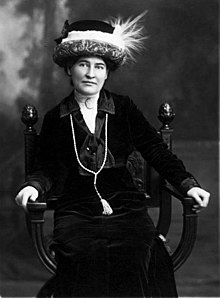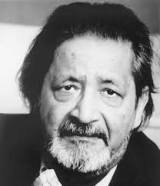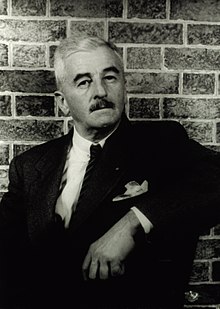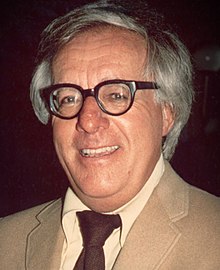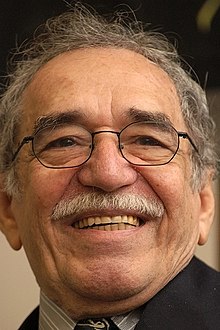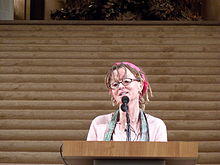The Writer’s Workshop will regularly feature an interview with a well-known author of fiction or nonfiction. These interviews explore the art and craft of writing, making clear how these writers got their start, how they developed their style, and how they continue to find inspiration in their work.
On Landscape, Narrative and How to Write: An Interview with Barry Lopez
Writer’s Workshop interviews Barry Lopez
Nick O’Connell
Barry Lopez’s work illuminates and celebrates the intimate connection between people and place.
In the nonfiction books About This Life (1998), The Rediscovery of North America (199o), Crossing Open Ground (1989), Arctic Dreams (1986) and Of Wolves and Men (1978), he employs many different perspectives and methodologies to clarify this connection.
The short stories in Field Notes (1994), Winter Count (1981), Desert Notes (1976) and River Notes (1979) turn on humans’ relationship with the environment in which they are living. Many of the images of peace or coherence in these stories come from people touching the land. Lopez’s work helps us appreciate the power of landscape and its importance in our lives.
Born January 6, 1945, in Port Chester, New York, Lopez received an A.B. (cum laude) from the University of Notre Dame in 1966 and an M.A.T. in 1968. He did graduate work in 1969 and 1970 at the University of Oregon before becoming a full-time writer in 197o. He has received numerous awards, including the American Book Award for Arctic Dreams and the John Burroughs Medal for Of Wolves and Men. He was honored with a Distinguished Recognition Award from Friends of American Writers for Winter Count, and received an Award in Literature from the American Academy and Institute of Arts and Letters in 1986. His other works include Giving Birth to Thunder, Sleeping with His Daughter: Coyote Builds North America (Native American trickster stories, 1978), Desert Reservation (chapbook, 1980) and numerous works published in Harper’s, North American Review and National Geographic. He won the National Book Award for Nonfiction for Arctic Dreams (1986).
The interview took place in Spokane, Washington, where he was staying while teaching at Eastern Washington University. His apartment was simple, clean and full of light; no unnecessary furniture or decoration cluttered it.
Lopez is a sturdy, thick-chested man with dark brown hair and a well-trimmed beard. He wore jeans, a pressed dress shirt and cowboy boots and looked as if he’d be as much at home following a wolf biologist around the Brooks Range in Alaska as doing research in the Pierpont Morgan Library in New York. At times during the interview, especially when asked abstract questions, he would cease talking and whistle back at the birds singing outside the apartment window.
How did you first become interested in writing about the wilderness?
I don’t know. I’ve always been deeply interested in animals, in what they were doing and where they lived. They are for me parallel cultures. I think about them a lot and spend a certain amount of time with them. Natural history is the metaphor I feel most comfortable with as a writer—a kind of natural history that includes geography.
What do you mean about natural history as a metaphor?
Well, a writer has a certain handful of questions. Mine seem to be questions of tolerance and dignity, for example. You can’t sit down and write directly about these things, but if they are on your mind, they’re going to come out in one form or another. The form that I feel most comfortable with, where I do a lot of reading and aimless thinking, is in natural history—in the biology and ecology of animals or the differences between desert and arctic ecosystems, for example. This has been an area of concentrated reading for me since leaving the university. That and anthropology. Those are the two areas where I have a certain amount of material at hand that I can work with; and then inevitably I end up talking about these other things I’m concerned about.
Has our culture as a whole lost touch with the natural world?
Oh, sure.
And when this occurs, what happens to the culture?
The culture becomes solipsistic. It produces too much self-referential material and loses a sense of itself in the world because it creates too much of the world in which it lives. The reason you go into unmanaged landscapes is in part to get out of a world in which all the references are to human scale or somehow devised from a sense of human values.
So by going into these landscapes, you have a chance to learn about something that’s nonhuman?
It encourages you to think in a pattern that’s nonhuman. The proportion, line, color, and activity in wild landscapes are not arranged according to human schedules or systems of aesthetics. It’s important to expose yourself to this. Otherwise you have no check on your philosophy except what you make up.
It allows you to check your philosophy?
Yes. Opening yourself up to an unmanaged landscape is the same as opening yourself up to another culture. Other cultures force you to consider that the way you approach reality is not the one and only way. If you aren’t familiar with the metaphors of other cultures, then you can have no real depth perception. The issue is not which is the best way to think or what’s the best moral framework, the issue is that there are other, valid frameworks.
And so human culture needs landscape as a reference point?
Yes. Landscape is the culture that contains all human cultures. And when that reference point is destroyed .. .
You have nothing to verify anything against. You have created an environment in which totalitarianism thrives.
When you go to the wilderness, what kind of order do you find there?
Writer’s Workshop interviews Barry Lopez
|
| ||
The order I bring with me, until I start listening. Then I find many different orders. When you come to a wild place, you unconsciously impose your taxonomies on it. Part of what should come to you there, however, is that your taxonomies are an imposition. You can’t bring the orders with you and apply them.
How does story help us come to terms with the land?
There is an unmanipulated order in unmanaged landscapes. Story grows out of this order in the land; it heals you in much the same way the land itself does. The mind tends toward chaos and longs to move toward order. Story makes you feel healed and healthy because it restores that order within you.
Why is the story a particularly human need? Why don’t animals need something similar?
Animals have not broken out of their environment to the extent that we have. The Inuit people have an interesting observation here. A word they have for us translates “the people who change nature.” It has two meanings: we are people who manipulate landscape, and we also have managed something that baffles them—making nature an object. They look at themselves as part of what’s going on out there. They understand the complete absorption of the grizzly bear in the land, and they look at the white person as someone who has managed this quite extraordinary thing of completely removing himself from the land.
So the native peoples, or at least some of them, are still closely tied to the natural world. Is that why you’ve spent time studying their cultures?
When I first began reading the serious thinking of Native American people, I realized another culture had put into formal terms a way of thinking I’d felt inclined toward since I was a child. I just never knew that there were other people thinking along these lines outside my own culture. All cultures, of course, are flawed; the serious question for me became, “How do we bring together the best of what each culture has to offer?”
I’m disturbed sometimes by the amount of hatred directed against my own culture, as if it consisted of nothing but industrial imperialism, greed, duplicity, and Vietnam. Our culture is older than those things and it has had a great deal to offer: cathedral architecture, the thinking of Darwin, Mendel, Copernicus, Leibnitz, Carl Jung, the library at Alexandria, the ideas that came out of the Renaissance and the Enlightenment.
Obviously we’re in difficult straits at the moment. We have chilling issues before us—the manufacture and deployment of nuclear weapons, heavy metals pollution, habitat destruction all over the world. We’re not doing very well with these problems. Other cultures dissimilar to our own have insights that are worth paying close attention to, thought processes that would be useful. Because if we don’t solve these problems we’re not going to be around very long.
One of the things we’re trying to do today is understand what we’ve thrown away in the Holocene, those moo° years since we emerged in northern Mesopotamia as a people with inclinations toward agriculture and urban living. During this 10,000-year period we threw these things away in the belief that we were improving ourselves. And now it seems that maybe we shouldn’t have thrown some of them away, for practical reasons and for reasons of the heart, mind and spirit.
Writers, anthropologists, philosophers, thinkers and scholars are trying to go back and look at Native American cultures and ask, “What of the original wisdom remains with these people, and how might it serve us who are beginning to doubt seriously the tack we have taken?” But it is important, of course, to be careful about the extraction of that original wisdom, not to choose only the things we like, for example. And among all the people in a specific tradition, maybe there will be one or two articulate about ways of behaving. In our culture, we produce people like Thomas Merton. When we go among the Inuit, we should be interested in finding the Thomas Merton kind of mind. There’s a word for that person, isumataq, a person who can create the atmosphere in which wisdom reveals itself. This person is not necessarily a political leader but a human being the world has invested, in some strange way, with this ability. Occasionally, in our culture, writers do this.
Would this be deliberate on the writer’s part?
Well, it’s like everything else in writing. I don’t think you set out to do certain things with a story. I think story is so subtle that sometimes more is going on than you can consciously grasp. If you’re paying close attention to what you’re doing, you can create an atmosphere in which truth can reveal itself, and reinforce in a community a sense of what is good behavior and what are worthy ideals. Part of the function of literature is to make the quality of aspiration in a culture real, to make it clear that this is a real part of life.
As a human being you have concerns about the world in which you live, as a writer you tell a story. It may be that the story seems to have no direct connection with the issues that concern you as a human being, but there is a connection. And that’s where the moral dimension comes in. Everyone has things that disturb them about literature; one thing that disturbs me is that so much writing today has no moral framework.
Is it true that you trained to become a monk?
That was something that I considered very seriously when I was in college. It still occurs to me occasionally. I went to Gethsemani in Kentucky, where Thomas Merton was, in 1966. That’s the point at which I made the decision that I wasn’t going to go into a monastery. The work I wanted to do with my life—I didn’t have anything specific in mind—I was going to do outside. The monastic life is very attractive to me, probably more as an abstraction than as a reality.
Did you enter the novitiate?
No. I just made a visit. I stayed there for a while, thought about it and decided no. That was the last time I seriously addressed the question.
I grew up in a Roman Catholic tradition, and was deeply affected
Writer’s Workshop interviews Barry Lopez
|
| ||
by it. The part that affected me was the tradition of the Desert Fathers, the Jesuits, and the monastic tradition—not the things one normally hears about Catholicism.
Catholicism comes out for me especially in the memory of the Church Latin to Deum laudamus, we praise you God. In the middle of an arduous trip, I sometimes think, peccata mundi, the sins of the world.
Another image I have from childhood is of a group of men and women praying somewhere in the desert, and the reason chronically myopic and selfish people have not destroyed us with nuclear weapons is that, in a rarified and metaphorical way, there have been these enclaves of monastics praying. What keeps these things from exploding, perhaps, is that each of us in his own way is saying his prayers.
How does this part of your background make a difference in your writing?
At Notre Dame it was a requirement for undergraduates to take four years of philosophy and two years of theology. You were exposed to the thinking of Hegel, Descartes, Kant, Kierkegaard.
The courses that were of lasting importance were these in philosophy and theology, not because you believed one way or the other, but because you realized from them that you had to be responsible in your life for what you did. You had to be responsible as a human being, responsible as a writer.
Would you say that your first orientation as a writer is toward the spiritual?
No. I don’t think in terms of dividing the material from the spiritual. My response is to a phenomenon that has many dimensions, some of which can be addressed in a story. When I was working on the wolf book, I was attracted to the animal itself. When I began that book I realized that part of what I wanted to do was to look at the animal from the point of view of different people, because the notion that one kind of thinking could make the animal clear seemed completely ridiculous to me. Every animal is a mysterious entity. There is a cer
|
| ||
tain amount of information that you can gather, but there is a great deal that you never will know.
In your book Of Wolves and Men, why was the wolf singled out for annihilation?
Why did it become the focus of blame?
Yes. Why not the grizzly bear, or some other animal?
The level of interference wasn’t as high with any other animal. Wolves to some extent occupy a niche that human beings occupy, so there was going to be some conflict. Part of what I wanted to do in Of Wolves and Men was to show that the different threads of connotation, including the sense of its being a warrior or a wanton murderer, had nothing to do with the wolf. I can’t imagine another animal that would fit the bill, so to speak, as far as projection is concerned. There was no coyote or jackal in Europe, that’s part of the explanation. Another part was that the wolf was a social animal and appeared in a formidable pack, rather than all alone like a bear. It looked like a dog but wasn’t a dog. It was also of a size to do some damage. Many things come into play.
How did you first become interested in writing?
I don’t remember. I was writing stories when I was in high school. I continued to write stories through college and after I graduated. I published a few book reviews, but I had no clear idea that I was going to be a writer. I guess it was just what I was, and after a while I was aware of that. I had no schemes, no plans about it.
Did you admire the work of other writers?
Oh, yes. Going back I can see that writing was a principal interest. I was strongly influenced by Hemingway and Faulkner. I admired Hemingway’s ability to get rid of what was not working, and to make things very tight. And with Faulkner I admired that wonderful vision of people moving around and doing things in a place, and the thicker texture of the work.
I think I read Moby Dick five or six times before I was eighteen. I read almost all of John Steinbeck when I was young. Later I tried to
Writer’s Workshop interviews Barry Lopez
|
| ||
read him again but he didn’t hold up as well. I also think of Gerard Manley Hopkins as an influence. But I was never interested in imitating anybody. My sense of imitation had to do with admiring how well somebody did their work, and wanting to do my work as well.
Nowadays, do you do a lot of traveling in the process of researching and writing your books?
Yes.
Does that hold for pieces like those in Winter Count?
Oh, no. I don’t intentionally go anywhere for pieces like that. I’m talking about nonfiction, magazine pieces, for Outside and National Geographic and Harper’s.
But you continue to write both fiction and nonfiction?
Oh, yes. I work in one area and then the other, back and forth. It would never occur to me not to work in one or the other. The kind of nonfiction I like to do comes out of going to a place. Traveling is very much a part of what I write about. There’s a certain amount of travel in the wolf book and a great deal of travel in Arctic Dreams. It’s very pleasant for me to go someplace and do a story. I like that. I like seeing a different part of the landscape and traveling around with different kinds of people and seeing what’s on their minds and talking to them and seeing the world from their point of view.
When you come back, is there another part of the process?
You sit and think about it, or split wood and think about it, or drive to town and think about it. Just keep turning it over until a light bursts through. After thinking about it for a long time, parts of it will just fall away and I’ll be left with what I was after all along.
That’s the problem when you try to go out with the story all figured out. So much is going to happen that you’re not going to see. For this reason, I rarely work on assignment. I don’t want to work with someone’s preconceived notions of what’s out there. What if you find something different? What if you find something you never dreamed was going to be there?
It’s important for me to be able to go to a place for a while and think about it and read a lot about it and talk to people who are there. And then fiction is a completely different thing. Fiction is completely out of your imagination.
That’s interesting, because some reviewers have thought that many of your short stories were nonfiction.
They’re all fiction. There’s no character as far as I know that corresponds to a character in the real world. The places are real—Nebraska, North Dakota, Madrid—but the rest of it is completely fictional.
How do your fictional pieces start?
A line or an image around which the story begins somehow. I don’t think I’ve ever known how a story was going to end. I might have some feeling for events toward the end of the story, but not in how they are going to come into play.
How does the story take shape?
I don’t think about that. I just try to be attentive at those moments when the story is getting outside me onto a piece of paper. I don’t think about these things much at all.
How do you know when the story’s finished?
There’s never a question. The order or organic quality of the story is such that it’s whole: more would be too much, less would not be enough. It’s just whole.
Is this an intuition that you’ve developed?
I guess it’s an intuition. I don’t quite know what’s going on there and I’m not interested in finding out.
Do you rewrite much?
I rewrite a great deal. The language is very important to me and it takes a long time to get the language right. Rewriting a piece is a matter of getting rid of some things, making things sharper, just making them tighter. I always think of that image of making the pieces fit together more tightly. It’s not the kind of rewriting where I write a different end or a different beginning—I never do that. I’ll probably do it now that I’ve said I never do it.
Writer’s Workshop interviews Barry Lopez
|
Is there something you learn in the process of writing? | ||
Sure. You’re bringing order out of chaos. You know a lot more about it when you’re finished.
Is that why you write?
I don’t know, could be. An image just occurred to me that I hope is not too peculiar. I don’t know if it’s right or not. But there is this thing called prayer. Prayer is a way to formalize in a conventional sense with language the relationship between yourself and a spiritual entity or entities. But I think of prayer as larger than that; in the monastic traditions your work is your prayer. So you don’t create this dichotomy that Monday through Saturday you’re doing one thing, and Sunday you’re doing another. In the monastic traditions there are times for prayer, meditation or reading the breviary, but there is an understanding that your work is your prayer. And there must be a similar idea in Buddhism, that your life is your prayer. There must be moments in your life when you are saying your prayers better, and that’s what writing is for me. In writing a story, you’re trying to make something intelligent and beautiful and worthy, the same thing you’re trying to do as a dancer on a stage or the same thing a painter is trying to do. I had never thought about it, but I think this idea about prayerful activity is probably very close to something for me and the way I think about things.
How is your writing developing?
You mean where is it going?
Yes.
I don’t know. I’ve been so buried in this arctic book that that’s about all I’ve been thinking about.
What about the earlier books? Do you see a progress in them?
I don’t ever think of progress. I think of being a different person a little bit. I just continue to try to write well about what interests me. I don’t have any sense of improvement. You would hope that over a period of time you would learn to be a better writer, but so much comes into play when you have the subject and the language. You have a certain amount of control over the language, so you can bring good language to a bad subject. And then every once in a while you bring good language to a good subject and there’s something quite memorable in the piece. Most writers do a few things of great value and some other things that are good but in some ways not as successful. It’s idiotic to think that as you grow older you inevitably grow better or wiser, where it’s really a matter of what frame of mind you are in when you encounter a certain subject. So the good books can come early or late or scattered through your career.
It’s important to consciously break patterns a little bit, not to do everything one way. I’m interested now in writing for National Geographic. This is a new one for me. I keep trying different kinds of things. I don’t want to fall into the habit of trying to imitate myself. The arctic book has certain things in common with the wolf book, but it’s different.
Why did you move to the West Coast?
I grew up in Southern California and I’ve always felt more comfortable on this side of the continent. When I was a child I was in the Mojave Desert and the Grand Canyon and places like that. That’s where I got the feelings about landscape that have remained with me the longest. My family moved to New York City when I was eleven. I loved living in New York; I’ve always considered it a privilege to have lived there and I like going back, but I’m just more comfortable out here. More people out here are thinking about the relationship between human beings and the landscape. It’s a topic of conversation that you can strike up more easily with people here than you can back East. I’m very interested in talking with students at eastern universities about these issues, however. They are thinking about some of these things, but they’re not thinking about them in ways I’m used to. So I want to talk to them, to find out how they’re doing it, because I want to understand it. I know something about the relationship between human beings and landscape out here, but I want to know a lot more about it from people back East because I want to understand it as a national issue rather than a regional issue.
So the landscape is a big part of your writing?
Certainly. The issue at the heart of Arctic Dreams is the relationship between landscape and imagination—how do we describe the land and how do we explore it? Certainly I would say that landscape is a central issue for me. Overall it probably has more to do with my work than any strict consideration of dignity and tolerance. The relationship between human beings and that part of the landscape called Canis lupus is what the wolf book is about. And many of the stories in Desert Notes and River Notes turn on people’s relationship with an environment in which they are living. Many of the images of peace in those stories come from people touching the land.
So you don’t consider landscape as part of the background?
God no. Anything but. It’s an integral part of what’s going on. Eventually what American literature is going to offer among the world’s literatures, I think, is an illumination of this issue of man and landscape, particularly modern man trying to come to grips with a reorientation toward landscape. In some ways I think of Moby Dick as a landscape novel, or Stephen Crane’s The Open Boat. I think of the role that landscape plays in Faulkner, the role of landscape in South American literature, some of which derives from Faulkner. So I tend to think what has distinguished and what will distinguish American literature from European literature is an elucidation of this issue.
Is language an outgrowth of a particular landscape?
I think so. The indigenous quality of language is probably most clear in the poetic, more clearly rhythmic forms of the language, or in songs or music. With some words, some rhythms, you might be able to say, “Yes, the relationship is clear.” Instances turn up constantly in native languages. One I just ran across for Baird’s sandpiper, an Inuktitut word, is tuituek [two-EE-two-ek].
Isn’t that wonderful? Saying the word is just what Baird’s sand‑pipers sound like. So when you tell a story about tuituek, right away you’ve sewn yourself into something that is familiar aurally to the listener or reader. I said in the essay about landscape and narrative [“Story at Anaktuvuk Pass,” Harper’s, December, 1984], that the writer has a responsibility to establish intimacy with the landscape and intimacy with the reader. A critical quality to me in story is intimacy. When you say, “I want to tell a story about tuituek,” the intimacy is already starting to work.
In the terms you used in that essay, how does the “exterior landscape” of the Northwest become part of people’s “interior landscape”?
They begin to think in terms of the topology that is there. They think, if they’re living on the west side of the mountains, less about the sun and its circuits, less than somebody living, say, in Nebraska. In a completely indigenous literature, one that grows out of the country west of the Cascades and north of Mount Shasta or Trinity Alps, the emotional shadings of the story will in some ineffable way be part of, will have reference to, that landscape. I don’t think it will be one to one, but a mind shaped in the Pacific Northwest is not like a mind shaped in the Sonoran Desert, or the Piedmont Country in the Carolinas. I think that people out here have a way of putting things together a little bit differently.
Is it possible that someone from another place who reads a story set out here might not find the story comprehensible?
Could be that it wouldn’t be completely comprehensible to them. That’s very true.
Is it difficult to make a story set in a particular landscape meaningful to someone not familiar with the landscape?
Good work is always difficult. I try to create a place where the reader can walk around on a solid floor, where a reader can get the feeling that the writer has built a solid foundation; that it’s not just off the top of his head. Having built a solid floor on which to stand, I then try to address things that I think will be understood for what they are, but are also rich enough as incidents to be understood in a larger context, so that the metaphorical part of the human mind comes into play.
One of the things that happens for me in rewriting a piece is that I’ll get up to my ears in scientific jargon. I don’t worry about it in the beginning, but I worry about it when I rewrite because I want to get rid of that. It puts off the reader, not only because the reader wonders what the hell the word means, but because you can seem to be affecting a pose—that you’re a biologist when you’re not, you’re a writer.
So your job as a writer is to do all that research to build a floor on which a reader can wander around, and then create an environment in which thinking and reaction and wonder and awe and speculation can take place, and not try to do it in a dogmatic way, or to be adamant that one thing or another has to be understood in precisely this way or otherwise it’s no good. A book should be rich with suggestion. I mean, obviously, you want to bring the reader to the point of view that you have, but you must do it in a respectful way. I told the students the other day, “What you are doing when you write nonfiction, the frame of mind that you should have, is to make a bow of respect toward the material and make a bow of respect toward the reader—that’s what the piece is.” The bow of respect toward the material means try to understand what’s coming from it, not what you are trying to impose on it. Listen. Pay attention. Do your research. Try to learn. Don’t presume. And always imagine that there’s more there than you could possibly understand or sense. The bow to the reader is to say, “I have assembled this material. I have tried to bring order to these disparate elements. I have tried to use the language elegantly. Everywhere I could I have sought illumination, clarity. I have tried to organize things with a proper sense of the drama of human life. I have tried to think hard about these things. I have tried to get rid of all that is unnecessary.”
So it’s just to show some regard for the reader. You’re asking the reader for time and a certain amount of attention. Somebody said that what you want from a reader is someone who reads as attentively as you write. One way to get that is to cultivate a sense of respect for the reader.
Your stories grow out of a particular place, but if you do these things you just mentioned, can they be widely understood?
Yes, I think so, at least understood within your own country. I had an experience recently talking with some Japanese. A Japanese man said through the translator, “What have you learned from wolves?” I said, “Tolerance.” The translator turned to me and said, “This might not work. What you mean is a pretty foreign, esoteric notion to the Japanese. They are not a tolerant people. What you’re saying is going to sound pretty strange to them.” So I got through it, but I found that some of the things I’m trying to talk about as a writer are not things of interest to other cultures. If you can make sense of things for your own culture, that’s quite enough.
Is this what you were trying to do in Arctic Dreams?
Yes. The Arctic was a place where I could examine some of these large issues. One of the critical things in the book for me is coming to an understanding of what North America has to offer us. When Frobisher sailed into Frobisher Bay in 1576, he thought the land to the north was Asia, and what lay to the south was North America. He thought he had discovered a passage down which he could sail to the Spice Islands and China. When he came back to England and made his presentation to Queen Elizabeth, he offered her the opportunity to name the southern land. She called it meta incognita, the unknown land.
North America is the meta incognita of our Judeo-Christian, Western European civilization. We are still in the process of discovering North America. We are still looking for the Northwest Passage, trying to find a passage through our projected understanding of North America to a real understanding of it.
Animals and the landscape have more protection here than any place in the world. There is legal and social pressure here to preserve the heritage of a relationship between a native people and a native landscape, which can be plumbed for some of its original wisdom. But we’ve been here for 45o years and we continue to destroy instead of stopping to look at what lies before us.
One of the questions that Arctic Dreams addresses is, “What does it mean to be rich?” Is it to possess the material, tangible wealth of North America—the gold and the silver, the timber, the fish and the furs? Or is real wealth, lasting wealth, something else? Most of us, I think, believe that it is something else. We have taken the most obvious kind of wealth from this continent and overlooked the more lasting, the more valuable and sustaining experience of intimacy with it, the spiritual dimension of a responsible involvement with this place.
 The Writer's Workshop
The Writer's Workshop 
